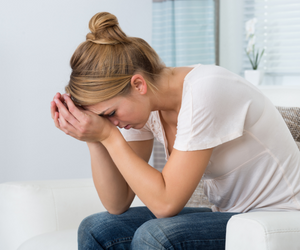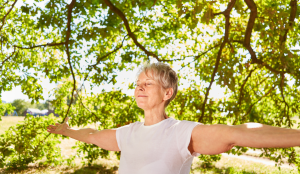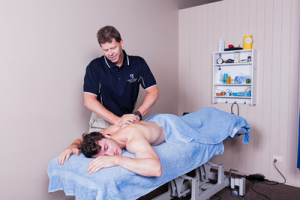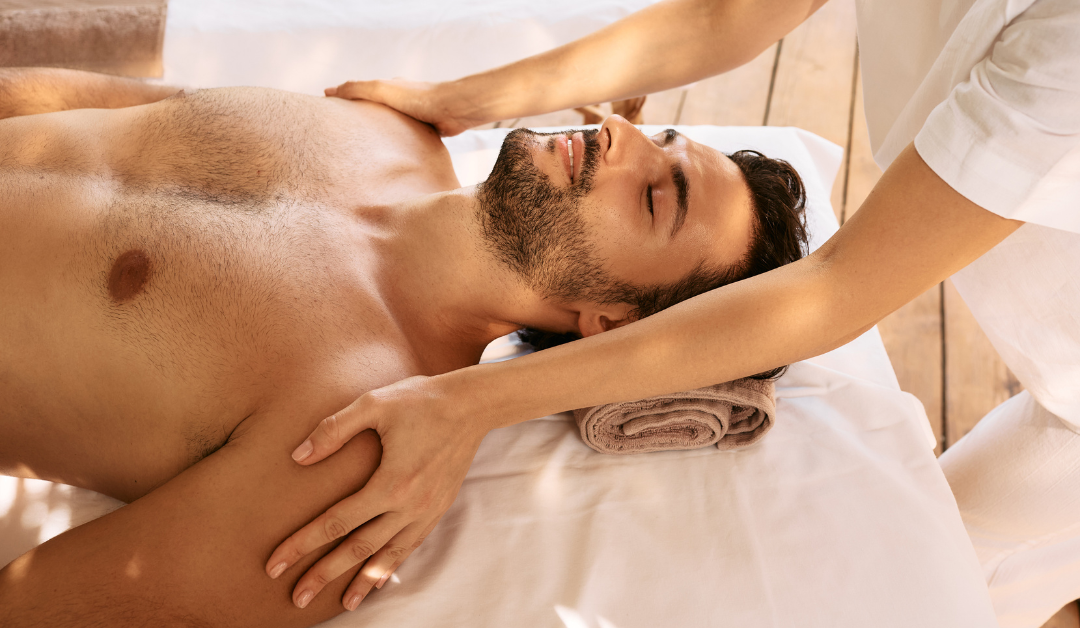Massage is well known as a form of physical therapy.
It can reduce muscle tension, improve mobility and flexibility of your joints, assist with recovery of soft tissue injuries, and also increase relaxation.
But can it help with anxiety or stress?
In short, yes it most certainly assists with relaxation, however there are many more reasons that we’ll explore below.
What is Anxiety?
Anxiety is the most common mental health condition in Australia, affecting 1 in 4 people during their lives.
It is more than feeling stressed or worried every now and again. Stress is a common response when we are under pressure. Anxiety is when these anxious feelings don’t go away and they may not have a clear cause. Anxiety makes it hard for a person to cope with everyday life, so it is a serious condition not to be taken lightly.
What are the signs of Anxiety and how does it affect your body?
Some signs of anxiety include –
- Excessive worry or fear
- Difficulty calming down and controlling thoughts
- Panic attacks
- Muscle tension
- Restlessness
- Sleep issues
- Increased heart and breathing rates
- Tiredness and difficulty concentrating
 If anxiety is left untreated it can significantly and negatively impact a sufferers quality of life.
If anxiety is left untreated it can significantly and negatively impact a sufferers quality of life.
These effects are not just psychological. Anxiety can cause a range of physical effects due to the activation of the body’s stress response. This is your ‘fight or flight’ response which is activated by the sympathetic nervous system. In the long term, activation of this response can result in longer term health issues like the risk of heart attack, stroke, weight gain and digestive problems.
Mental and physical anxiety often go hand in hand. When a person is anxious the muscles in their body contract and shorten, which leads to discomfort or pain. Also the higher levels of the stress hormone cortisol can increase the person’s sensitivity to pain.
Anxiety can also affect the person’s ability to exercise or stretch which may in turn affect their posture and gait. Some physical side effects can include fidgeting, slouching, ticks or repetitive movements, which all may lead to muscle tension and pain. Unfortunately anxiety can also lead to a poor diet with minimal nutrition and hydration and sleep issues.
Treatment for Anxiety
There are a wide range of evidence based psychological and medical treatments available. Different treatments work for different types of anxiety conditions. It’s best to see your GP initially and then find the best treatment to suit you, usually by trialling different options.
Alternative Therapy Methods
Your health professional may refer you to try other alternative methods of treatment like counselling, massage or herbal remedies.
They can also provide you with anxiety management strategies which may include things like meditation, breathing techniques and lifestyle changes.
One of the main focuses is muscle relaxation and Massage Therapy is a great way to do this.

How Massage can help with Anxiety
First and foremost massage therapy provides a deep feeling of relaxation, which reduces muscle tension. However studies show that there is a positive correlation between massage and reduced levels of anxiety.
Ways Massage can help include –
- Reducing Cortisol Levels –Cortisol is associated with high levels of stress, anxiety and depression. When our body is tense or in pain, cortisol is released. Therefore alleviating pain and muscle tension with massage will reduce the amount of cortisol produced.
- Stimulation of the pregenual anterior cingulate cortex in the brain –Massage stimulates this area of the brain that is linked to sensations of happiness and enjoyment. Research shows how important touch and skin contact is in therapy.
- Positive effects on Blood Pressure, Insulin and Glucose Levels –Tactile massage was able to reduce anxiety levels and reduce stress, shown through decreased blood pressure as the participants could breath much easier and relax with skin on skin contact.
- Relieving tightness –Massage like Lymphatic Drainage, stimulates the lymphatic system to remove waste from the body more quickly, relieving tightness and improving movement, and therefore stress levels.
- Peaceful Relaxation – Massage is known to induce a physical relaxation response, which slows down our heart and breathing rates, and allows us to practice mindfulness in a calm environment. Slow breathing allows for progressive muscle relaxation and allows you to stay present in the moment, which is a well known strategy to reduce the symptoms of anxiety.
How Often should I get a Massage for Anxiety and Stress Management?
If you are new to massage, it is a great idea to schedule a few sessions in succession, so that you can give yourself the best chance to respond well.
You will be able to see how helpful it is for your anxiety and once the immediate tension or physical pain subsides, you can work with your therapist to alter your schedule to suit your needs.
Regardless of how often, the very act of scheduling your massages in advance, provides you with some satisfaction that you are doing something positive for yourself and also gives you something to look forward to.

Massage at SPHC
We have highly experienced and supportive massage therapists that offer various types of massage to help with anxiety and stress.
We specialise in –
Read more about our full range of Massage Services, and to make a booking, please call us on 07 3869 1099 or BOOK ONLINE.
Disclaimer: Whilst Massage can be a very important treatment option for anxiety sufferers, we don’t recommend it be the sole solution. Please see your healthcare professional for a holistic plan of treatment options.

